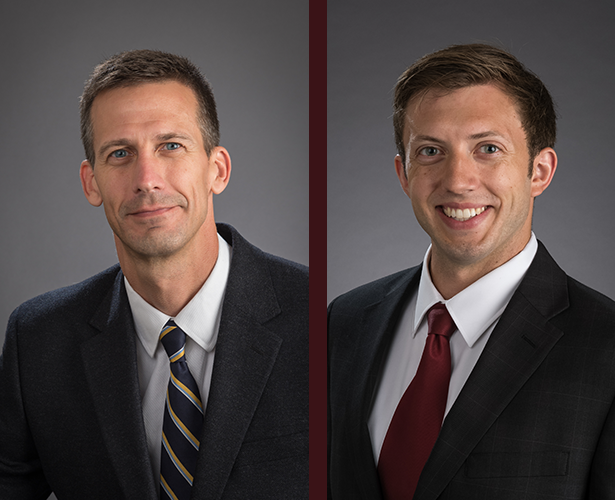Selected as a Sylff Fellow

In a Q&A, two students open up about how their fellowships are preparing them to break global boundaries after GPS
March 20, 2017 | By Sarah Pfledderer | GPS News
Inspired by late philanthropist Ryoichi Sasakawa’s vision that “the world is one family and all mankind are brothers and sisters,” the Ryoichi Sasakawa Young Leaders Fellowship Fund (Sylff) program funds the education of outstanding graduate students with high potential for leadership.
Commemorating its 30th anniversary in 2017, the program—organized by the Tokyo Foundation and Nippon Foundation, of which Ryoichi Sasakawa was founding chairman—has in that time provided fellowships to about 15,000 students at 69 endowed institutes in 44 countries.
As one of the Sylff program’s earliest conferees, the UC San Diego School of Global Policy and Strategy (GPS) has for 25 years embodied the program’s aim to nurture its student fellows to overcome differences such as nationality, language, ethnicity, religion, and political systems to tackle global issues.
To put a face to these students who are bound to be global leaders, we connected with GPS’s 2016-17 Sylff Fellows. Here’s what Rick Ferrera, 2017 MIA candidate, and Philip Voris, 2018 MIA candidate, had to say about their fellowship and its benefits.
For some background, where do you call home and what led you to GPS?
PV: I’m originally from the Bay Area, having spent much of my life in the East Bay, with a stint in Manhattan and, eventually, eight years in the Kansai region of Japan. The combination of my experience in Silicon Valley and Japan made GPS a natural fit due to its focus on the Pacific region and innovation.
RF: I’m from Minneapolis, but I had been working in Indonesia for a couple of years before coming to GPS. I chose the School because of its technical curriculum and exposure to the innovation happening in California energy and climate policy.
What does “being a Sylff Fellow” mean and how did the program come on your radar?
PV: After returning from Japan, I took a position working with the Family Services Agency of the City of San Francisco, working to address the area’s growing mental health challenges. By returning to school, I wanted to give a voice to the lessons of my work experience across sectors. When I received word of this fellowship, I was speechless. I’m still humbled by the investment of faith it represents. The Tokyo Foundation provides opportunities for students concerned with bettering our world to develop our skills and refine our ideas. Whether in academia, public service or the private sector, the goal of the program is to create opportunities for students to have a real impact.
RF: I actually learned about the program back in college. The Tokyo Foundation also offered Sylff Fellowships at American University in Cairo, which I applied to for an MA in Arabic language and literature. I ultimately decided to do something else and didn’t think about the Sylff program for years. Imagine my surprise when I learned I’d been selected as a Sylff Fellow at GPS in 2015! I think it’s a relevant story because it indicates the breadth of activities Sylff Fellows participate in at institutions around the world. It’s also a good way of remembering graduate school isn’t just a slog through a lot of homework assignments—it’s a big, global search for newer, better ways of doing things that go far beyond GPS or any other single school.
In what ways, if any, has being a Sylff Fellow complemented your curriculum at GPS?
PV: I took the opportunity to visit the Tokyo Foundation in Japan during my winter holiday to get a deeper understanding of the organization. Among other benefits, a Sylff Fellow may make research proposals during or after graduation that, if approved, the Tokyo Foundation will fund to a specified amount. That’s an incredible opportunity, particularly if you wish to pursue a doctorate. It is all the more so because this opportunity isn’t time-bound. While at GPS, I have already made use of the foundation's published research for my studies. It is committed to long-term engagement with its fellow’s on a variety of projects around the world, and I fully intend to avail myself of its resources going forward.
RF: It has been a fun way to meet other people participating in Sylff programs, including fellow GPS students, professors and Ph.D. researchers from other countries who visit UC San Diego.
To what extent do you believe this fellowship will benefit your career pursuits after GPS?
PV: Since studying mass media and politics as an undergrad, I have been fascinated by the interaction of culture and society. Returning to my hometown after eight years abroad, I was keenly aware of how much impact innovation can have for both good and bad. The experience in Japan provided a counterpoint—a more harmonious integration, if you will. Promoting development that lets us grow without losing our unique character—that works in concert with what makes each culture unique—is what interests me. GPS is providing me with a framework and toolkit to better undertake this sort of research work in a credible, quantifiable way. Ultimately, I intend to pursue a Ph.D., but hope to keep one foot in private sector work. So, the support of this fellowship is particularly valuable to me.
RF: I want to work on interesting problems with interesting people. It’s hard to align incentives in ways that promote technological advancement, social welfare and human happiness. But there are a lot of people working hard to figure out how to do it, and I want to be one of them. I don’t have many connections to Japan, but the Sylff Fellowship is managed by the Tokyo Foundation. It is good about communicating with Sylff Fellows and making us aware of opportunities I wouldn’t have known about otherwise. It also has opportunities to be involved with Sylff networks long after graduate school.
Learn more about GPS’s Sylff Fellows.

